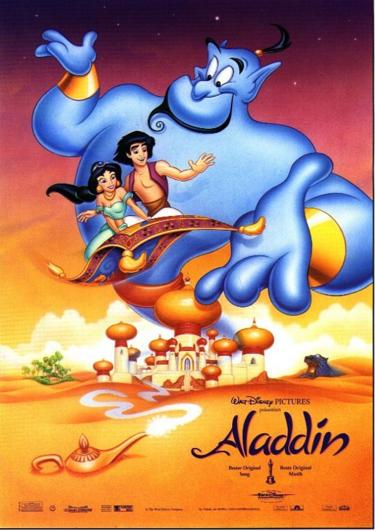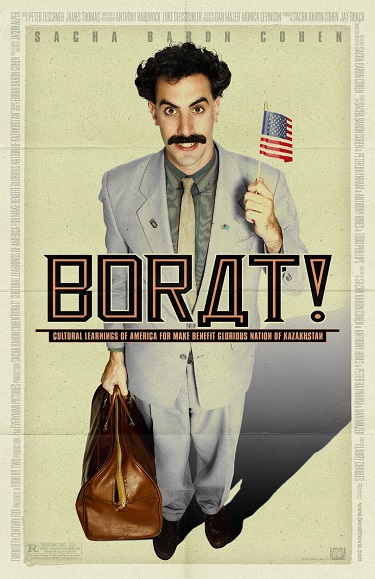Did Robin Williams Ad-Lib So Much During Aladdin That the Movie Was Ineligible for a Best Screenplay Academy Award?
Here is the latest in a series of examinations into urban legends about movies and whether they are true or false. Click here to view an archive of the movie urban legends featured so far.
MOVIE URBAN LEGEND: Robin Williams ad-libbed so much of Aladdin that the movie was rejected for a nomination for an Academy Award for Best Adapted Screenplay.
Tragically, Robin Williams passed away last year at the age of 63. With the sudden passing of such a comedy icon, the internet was filled to the brim with tributes to Williams. Along with these tributes came a number of, for lack of a better term, “lists of interesting facts about Robin Williams.” This is not surprising, of course, as numbered lists have become very popular on the internet. However, I noticed something a bit distressing about these lists – they seem to use a lot of the same “facts” and these facts did not seem to be fact checked at all, instead seemingly going under the theory of “Well, if Site X and Y are reporting it, I guess we can, too.” That’s pretty standard behavior for small independent websites, but I’m talking about this behavior from the Huffington Post and CBS News. Honestly, it looks like writers just pulled things from the Internet Movie Database (IMDB)’s Trivia page and just ran them as facts. The issue, of course, is that these “facts” are user-submitted and are often unsourced, leaving the truth behind them up in the air. One fact I saw repeated a number of times on these lists in the weeks following Williams’ death is that Robin Williams ad-libbed so much of his dialogue as the Genie in Aladdin (a role which ended up causing him a lot of aggravation, as we covered in an old Movie Legends Revealed) that the film was ineligible for an Academy Award for Best Adapted Screenplay.

Is that true?
A few common things make my skeptic radar ping when it comes to “facts” on the internet. The most common one is what I mentioned earlier about lack of sources. If an interesting fact is just tossed out there without anything backing it up, it stands out to me as suspicious. Another major one is when the same fact is reported in numerous different ways. Here are the different ways that this fact was reported in those first couple of weeks following Williams’ passing:
“Because Robin Williams ad-libbed so many of his lines, the script [for Aladdin] was turned down for a Best Adapted Screenplay Academy Award nomination.”
“Again, it is thought that Williams ad-libbed a lot of his lines in Aladdin; so much so that producers ended up with over 16 hours’ worth of material, and the film could not be submitted for Best Adapted Screenplay at the Oscars.”
“Because Williams ad-libbed so many of his lines, the script didn’t get a nomination for best adapted screenplay at the Oscars.”
“So much of Williams’ wild performance was improvised that the Academy turned down the film’s submission in the Best Adapted Screenplay category.” This quote from the Cleveland Plain Dealer was what the Huffington Post used as a citation for the following quote:
“Apparently, the Academy Awards rejected the bid for “Aladdin” in the Best Adapted Screenplay category because so much of Williams role ended up being improvised.”
“According to reports, the 1992 Disney film was turned down for a Best Adapted Screenplay Academy Award nomination because Williams had ad-libbed so many of his lines as the goofy but loyal Genie.” (Do you know what the “report” was for that last one? The IMDB trivia page for Aladdin!)
When you have that much variety, it is often because there is no true original source to go to so there is no consistency in how the story is reported.
So in checking to see if this was true, I first read a number of Williams biographies and books about Aladdin and searched through contemporary news accounts of the time and found no evidence of the Academy denying Aladdin a nomination for the stated reason (I did come across an interesting opinion piece by Phil Rosenthal over how Williams deserved a Best Supporting Actor nomination for the role as the Genie).
Secondly, I considered the question – Was it even odd for Aladdin to not get nominated for Best Adapted Screenplay? Not only was it not odd, it had actually never happened before in the history of the Academy Awards! No animated film had ever been nominated for a screenplay Academy Award. Not Snow White, not Bambi, not Dumbo and more importantly, not The Little Mermaid or Beauty and the Beast (Aladdin‘s contemporaries). Beauty and the Beast was the first animated film to be nominated for Best Picture (Aladdin was not) and it still didn’t get nominated for Best Adapted Sceenplay (Toy Story became the first animated film to received a Best Screenplay nomination). So it not only was not surprising that Aladdin did not receive a nomination for Best Adapted Screenplay, it would have been surprising if it did receive one.
So without any evidence stating that it was specifically denied an Oscar nod and with the fact that it was quite common for popular Disney animated films to NOT be nominated for Best Adapted Screenplay (even a film like Beauty and the Beast, which was nominated for Best Picture overall), it already seems highly unlikely that this story is true.
But here is the kicker – improvised films are eligible for Best Screenplay awards! There are a number of examples of films with extensive ad-libbing that later got nominated for Screenplay awards like Beverly Hills Cop and Shrek, but the most famous example is 2006’s Borat: Cultural Learnings of America for Make Benefit Glorious Nation of Kazakhstan, which was nominated for Best Adapted Screenplay despite the vast majority of the film being improvised (and not just one character’s dialogue).
With all of this factored in, I feel safe in saying that this legend is…
STATUS: False
Feel free (heck, I implore you!) to write in with your suggestions for future installments! My e-mail address is bcronin@legendsrevealed.com.
Tags: Animated Film, Walt Disney







M*A*S*H was famously improvised and yet WON the Oscar for Best Adapted Screenplay.
Altman has always claimed that “M*A*S*H” was improvised, but the writer has the final draft and the shooting script, and they are more than 90% identical to the final film.
“But here is the kicker – improvised films are eligible for Best Screenplay awards!”
Two things: One, it is possible for rules to change, and two, I think it is quite possible that voters discount screenplays for films that are largely improvised no matter what the rules say. I do agree with your conclusion, mainly because, as you say, animated movies didn’t get screenplay nominations back then, and “Aladdin” was a lot less respected than either “Beauty and the Beast” or “The Lion King”.
There definitely was a push of sorts to get Williams nominated, and there the rules clearly made him ineligible.
The reason improvisation wouldn’t be a factor is that it is the province of the WGA, not the Academy. The WGA requires that *somebody* get a screenplay credit. Now, I suppose it would be possible for somebody to improvise so much as to earn a writing credit, but generally speaking dialogue is the least important factor in earning a credit, so it will almost certainly never happen.
As Sean said: Robert Altman claimed that much of M*A*S*H was improvised in a few interviews until the producer set him straight, saying he knew very well that Ring Lardner Jr. wrote the vast majority of everything on screen and to knock it off with the “improvising: crap or there would be consequences. It’s on the making of documentary on the dvd and blu rays.